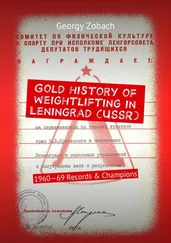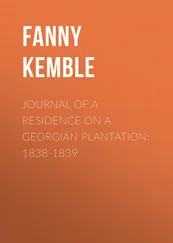Fanny Kemble - Records of a Girlhood
Здесь есть возможность читать онлайн «Fanny Kemble - Records of a Girlhood» — ознакомительный отрывок электронной книги совершенно бесплатно, а после прочтения отрывка купить полную версию. В некоторых случаях можно слушать аудио, скачать через торрент в формате fb2 и присутствует краткое содержание. Жанр: foreign_prose, foreign_antique, на английском языке. Описание произведения, (предисловие) а так же отзывы посетителей доступны на портале библиотеки ЛибКат.
- Название:Records of a Girlhood
- Автор:
- Жанр:
- Год:неизвестен
- ISBN:нет данных
- Рейтинг книги:4 / 5. Голосов: 1
-
Избранное:Добавить в избранное
- Отзывы:
-
Ваша оценка:
- 80
- 1
- 2
- 3
- 4
- 5
Records of a Girlhood: краткое содержание, описание и аннотация
Предлагаем к чтению аннотацию, описание, краткое содержание или предисловие (зависит от того, что написал сам автор книги «Records of a Girlhood»). Если вы не нашли необходимую информацию о книге — напишите в комментариях, мы постараемся отыскать её.
Records of a Girlhood — читать онлайн ознакомительный отрывок
Ниже представлен текст книги, разбитый по страницам. Система сохранения места последней прочитанной страницы, позволяет с удобством читать онлайн бесплатно книгу «Records of a Girlhood», без необходимости каждый раз заново искать на чём Вы остановились. Поставьте закладку, и сможете в любой момент перейти на страницу, на которой закончили чтение.
Интервал:
Закладка:
We had left London in the afternoon, and did not reach Weybridge until after dark. I had been tormented the whole way down by a nervous fear that I should not know my mother's face again; an absence of three years, of course, could not justify such an apprehension, but it had completely taken possession of my imagination and was causing me much distress, when, as the coach stopped in the dark at the village inn, I heard the words, "Is there any one here for Mrs. Kemble?" uttered in a voice which I knew so well, that I sprang, hat and all, into my mother's arms, and effectually got rid of my fear that I should not know her.
Her rural yearnings had now carried her beyond her suburban refuge at Craven Hill, and she was infinitely happy, in her small cottage habitation, on the outskirts of Weybridge and the edge of its picturesque common. Tiny, indeed, it was, and but for her admirable power of contrivance could hardly have held us with any comfort; but she delighted in it, and so did we all except my father, who, like most men, had no real taste for the country; the men who appear to themselves and others to like it confounding their love for hunting and shooting with that of the necessary field of their sports. Anglers seem to me to be the only sportsmen who really have a taste for and love of nature as well as for fishy water. At any rate, the silent, solitary, and comparatively still character of their pursuit enables them to study and appreciate beauty of scenery more than the violent exercise and excitement of fox-hunting, whatever may be said in favor of the picturesque influences of beating preserves and wading through turnip-fields with keepers and companions more or less congenial.
Of deer-stalking and grouse-shooting I do not speak; a man who does not become enthusiastic in his admiration of wild scenery while following these sports must have but half the use of his eyes.
Perhaps it was hardly fair to expect my father to relish extremely a residence where he was as nearly as possible too high and too wide, too long and too large, for every room in the house. He used to come down on Saturday and stay till Monday morning, but the rest of the week he spent at what was then our home in London, No. 5 Soho Square; it was a handsome, comfortable, roomy house, and has now, I think, been converted into a hospital.
The little cottage at Weybridge was covered at the back with a vine, which bore with the utmost luxuriance a small, black, sweet-water grape, from which, I remember, one year my mother determined to make wine; a direful experiment, which absorbed our whole harvest of good little fruit, filled every room in the house with unutterable messes, produced much fermentation of temper as well as wine, and ended in a liquid product of such superlative nastiness, that to drink it defied our utmost efforts of obedience and my mother's own resolute courage; so it was with acclamations of execration made libations of—to the infernal gods, I should think—and no future vintage was ever tried, to our great joy.
The little plot of lawn on which our cottage stood was backed by the wild purple swell of the common, and that was crested by a fine fir wood, a beautiful rambling and scrambling ground, full of picturesque and romantic associations with all the wild and fanciful mental existences which I was then beginning to enjoy. And even as I glide through it now, on the railroad that has laid its still depths open to the sun's glare and scared its silence with the eldritch snort and shriek of the iron team, I have visions of Undine and Sintram, the Elves, the little dog Stromian, the Wood-Witch, and all the world of supernatural beauty and terror which then peopled its recesses for me, under the influence of the German literature that I was becoming acquainted with through the medium of French and English translations, and that was carrying me on its tide of powerful enchantment far away from the stately French classics of my school studies.
Besides our unusual privilege of grape-growing in the open air, our little estate boasted a magnificent beurré pear tree, a small arbor of intertwined and peculiarly fine filbert and cobnut trees, and some capital greengage and apple trees; among the latter, a remarkably large and productive Ribstone pippin. So that in the spring the little plot of land was flowerful, and in the autumn fruitful, and we cordially indorsed my mother's preference for it to the London house in Soho Square.
The sort of orchard which contained all these objects of our regard was at the back of the house; in front of it, however, the chief peculiarity (which was by no means a beauty) of the place was displayed.
This was an extraordinary mound or hillock of sand, about half an acre in circumference, which stood at a distance of some hundred yards immediately in front of the cottage, and in the middle of what ought to have been a flower garden, if this uncouth protuberance had not effectually prevented the formation of any such ornamental setting to our house. My mother's repeated applications to our landlord (the village baker) to remove or allow her to remove this unsightly encumbrance were unavailing. He thought he might have future use for the sand, and he knew he had no other present place of deposit for it; and there it remained, defying all my mother's ingenuity and love of beauty to convert it into any thing useful or ornamental, or other than a cruel eye-sore and disfigurement to our small domain.
At length she hit upon a device for abating her nuisance, and set about executing it as follows. She had the sand dug out of the interior of the mound and added to its exterior, which she had graded and smoothed and leveled and turfed so as to resemble the glacis of a square bastion or casemate, or other steep, smooth-sided earth-work in a fortification. It was, I suppose, about twenty feet high, and sloped at too steep an angle for us to scale or descend it; a good footpath ran round the top, accessible from the entrance of the sand-heap, the interior walls of which she turfed (to speak Irish) with heather, and the ground or floor of this curious inclosure she planted with small clumps of evergreen shrubs, leaving a broad walk through the middle of it to the house door. A more curious piece of domestic fortification never adorned a cottage garden. It looked like a bit of Robinson Crusoe's castle—perhaps even more like a portion of some deserted fortress. It challenged the astonishment of all our visitors, whose invariable demand was, "What is that curious place in the garden?" "The mound," was the reply; and the mound was a delightful play-ground for us, and did infinite credit to my mother's powers of contrivance. Forty years and more elapsed between my first acquaintance with Weybridge and my last visit there. The Duke of York's house at Oatlands, afterwards inhabited by my friends Lord and Lady Ellesmere, had become a country hotel, pleasant to all its visitors but those who, like myself, saw ghosts in its rooms and on its gravel walks; its lovely park, a nest of "villas," made into a suburb of London by the railroads that intersect in all directions the wild moorland twenty miles from the city, which looked, when I first knew it, as if it might be a hundred.
I read and spent a night at the Oatlands Hotel, and walked, before I did so, to my mother's old cottage. The tiny house had had some small additions, and looked new and neat and well cared for. The mound, however, still stood its ground, and had relapsed into something of its old savage condition; it would have warranted a theory of Mr. Oldbuck's as to its possible former purposes and origin. I looked at its crumbled and irregular wall, from which the turf had peeled or been washed away; at the tangled growth of grasses and weeds round the top, crenellated with many a breach and gap; and the hollow, now choked up with luxuriant evergreens that overtopped the inclosure and forbade entrance to it, and thought of my mother's work and my girlish play there, and was glad to see her old sand-heap was still standing, though her planting had, with the blessing of time, made it impenetrable to me.
Читать дальшеИнтервал:
Закладка:
Похожие книги на «Records of a Girlhood»
Представляем Вашему вниманию похожие книги на «Records of a Girlhood» списком для выбора. Мы отобрали схожую по названию и смыслу литературу в надежде предоставить читателям больше вариантов отыскать новые, интересные, ещё непрочитанные произведения.
Обсуждение, отзывы о книге «Records of a Girlhood» и просто собственные мнения читателей. Оставьте ваши комментарии, напишите, что Вы думаете о произведении, его смысле или главных героях. Укажите что конкретно понравилось, а что нет, и почему Вы так считаете.












